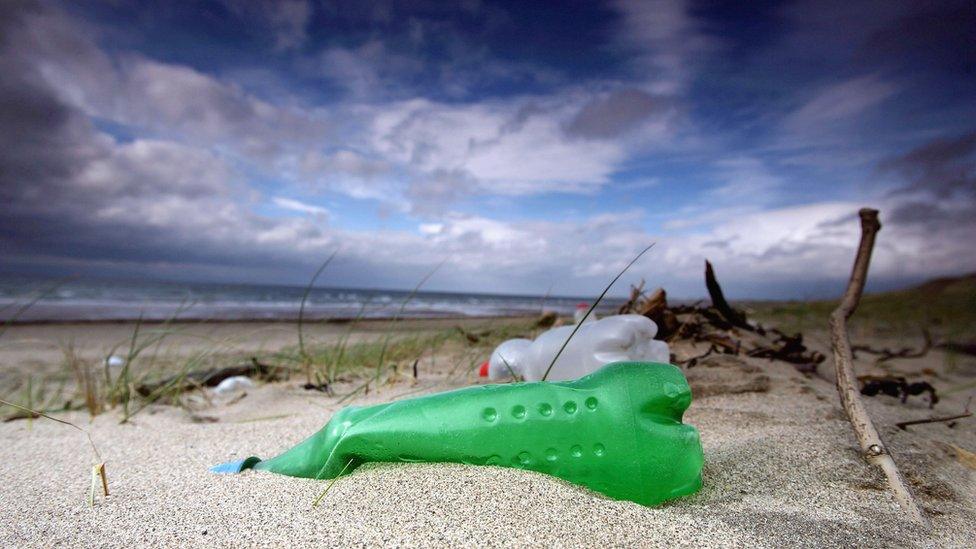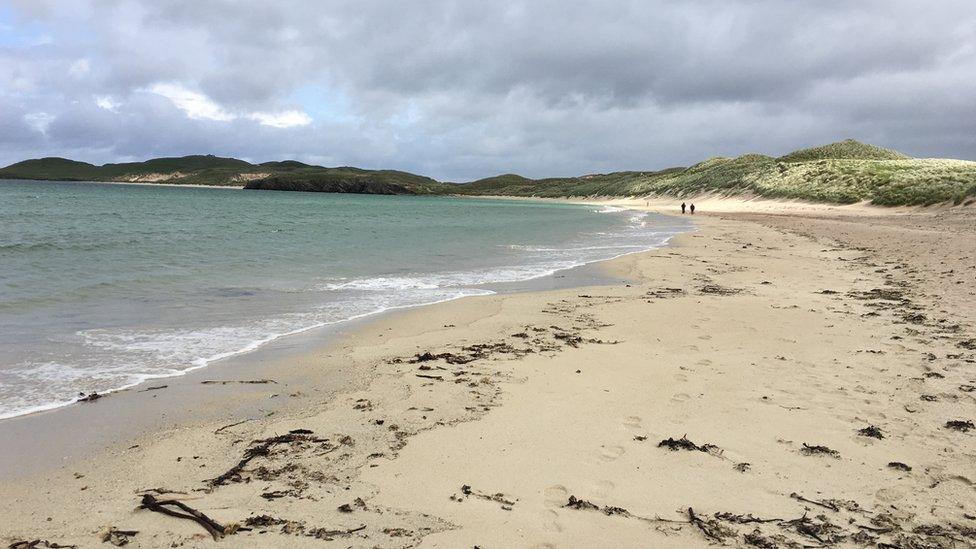Academics call for global action to tackle ocean plastic
- Published

Tonnes of plastic waste are washed up on the UK's coastlines every day
The University of the Highlands and Islands is leading a global call for governments to take more action to tackle marine micro plastics.
Public awareness of the problem has risen in recent years and work is under way to stop it getting worse.
But the Reseau d'Excellence de Territoires Insulaires said politicians must recognise the scale of the threat.
This is a global network of 28 island universities, led by the University of the Highlands and Islands.
In an open letter to the United Nations, the UK and Scottish Governments and the European Union it highlights the concerns of academics across the world.
'Growing anxiety'
Prof Clive Mulholland, principal and vice-chancellor of the university, is also president of RETI.
He said: "There is an issue of growing anxiety for scientists and the public alike.
"As a federation of island universities who are more affected by the impact of micro plastics on our campus environment, we are already committed to doing all we can through further research and academic collaboration.
"However, we also wanted the big players in this worldwide issue to recognise that we can work with them to tackle this global concern, through our academic expertise and commitment."

Prof Clive Mulholland, principal and vice-chancellor of the University of the Highlands and Islands
The letter says: "Much of our recent discussion has centred around common concerns on the threats posed by micro plastics in our oceans, an issue of growing anxiety for scientists and the public alike, across the globe.
"As a global network of island universities, we are extremely worried about the impact of micro plastics on our island nations from the perspective of the environment - and also our coastlines, tourism, fishing and aquaculture, health and our island communities."
It states the partners, from countries including Canada, Japan, Taiwan and Malta, have already committed to doing all they can through further research and academic collaboration.
The letter concludes: "As a group from island universities, we would welcome the opportunity to work with you to help address this growing global concern.
"This is a global concern - the answer must lie in global cooperation and we stand at the ready to contribute our expertise and commitment."
- Published3 July 2019
